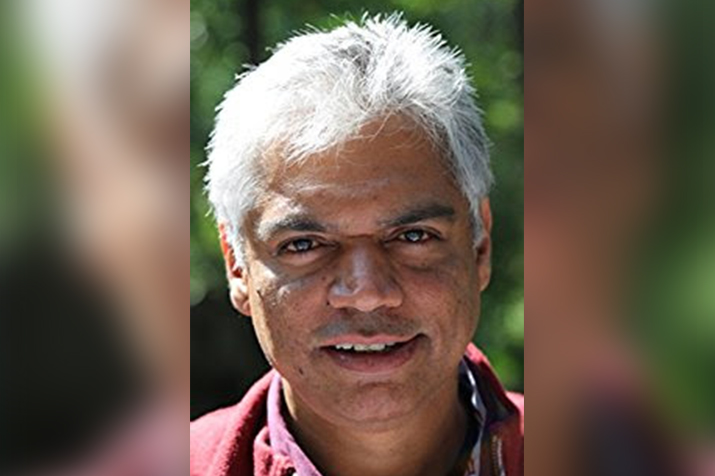What could possibly be more important to us than Nature? – Prakash Belawadi

The veteran actor talks about the pressing need to change our lifestyle, the post-pandemic future of theatre and more
Prakash Belawadi is a familiar face. In the movies, he has essayed several memorable roles. In theatre, he is a veteran. On news channels, you might occasionally find him involved in intense debates. Away from these on-screen dramas, Prakash also actively participates in environmental programmes. And, the National Award-winning filmmaker will talk about the need to change our lifestyle on Columbia Pacific Communities’ Facebook Live, #TheLivingRoom.
Ahead of his live session at 4.30 pm on July 17, Prakash spoke to MetroPlus on the post-pandemic future of theatre, his future projects and more.
What have you been up to in the last four months?
I have written a screenplay, and am presently working on the second one. I did some patchwork shooting for a web series. I have also been working on a play script which I’m adapting from a novel. I have been busy with the Rotary organisation too, especially for the cause of the environment, which is a new Rotary International area of focus. I have been active on Facebook following the Covid-19 pandemic and China’s politics, spending time at home and annoying my wife in the kitchen with my whimsical cooking.
What is the future of theatre after the pandemic?
Hard to tell when, but this pandemic will fade away, eventually. The virus may well learn to live and let live, or someone will find a cure or a vaccine. And we will be back in business. In fact, I will begin rehearsals for the play that I’m adapting, hoping to stage it in October or November. There have been pandemics before. Humans are resilient and fear is fast forgotten.
Will the pandemic impact the form and content of plays?
If the pandemic impacts our consciousness, if it makes us reflect on how we must live with nature and with each other, yes. We will see content that is concerned with equity and justice. Otherwise, we will get back to business as usual. In India, I’m hopeful that a change for the better will come about, gradually.
Can you talk about the differences between acting in cinema and theatre?
There are many differences. I will list some here: On stage, the whole body is before the viewer, it is not chopped up by framing and lensing into close-ups or mid-shots; action and reaction are not set in sequence by editing; the audience don’t get different points of view with changing camera placements; the action on stage is continuous, not broken up with editing cuts. The stage does not depend on “real places” for locations — jungles, the sea, mountains, ships, airplanes and trains, palaces or parliaments. It works by ‘suggestion’; a plastic chair can be a throne, a painting or pencil sketch can be a landscape; any man, woman or child from any part of the world can play the role of any character of any age, male or female — Abraham Lincoln, Queen Victoria, tiger or snake. Once the play begins, there are no ‘Action’ and ‘Cut’ calls, no retakes, no stops other than planned intervals… A stage play happens in a sacred time-space, it is not a recorded medium. Actors and audiences need to bring their ‘bodies’ to the space (theatre) and time (show duration) of action (the play) and experience. When the play is done, all we are left with is the experience. There is not a recorded reel. Of course, now we are finding a middle way with the live telecast of stage shows.
You have been an active participant in environmental programmes. Do you think our movies should highlight environmental issues as much as they do social problems?
Not just movies, all media and politics should bring ecology to the front page. We came from the elements, we will return to the elements. What could possibly be more important to us than Nature?
In the #TheLivingRoom, you’re going to talk about the changes we need to make in our lifestyle. What are the post-pandemic changes you foresee?
The previous pandemics, like the 2009 Swine Flu, didn’t hurt the economy as badly as this one. So we didn’t learn any lessons from it. But the worldwide lockdowns have destroyed businesses of the rich and livelihoods of the poor. Societies which care and that have commonsense will better appreciate that Nature is not a resource for humans to exploit, that Nature is the source itself — of all life, matter and consciousness.
The air was cleaner, skies bluer and waters sparkled during the lockdown. Nature doesn’t need humans. We need Nature. Nations that don’t learn that lesson and continue to destroy forests, pollute air and water by building concrete monstrosities will perish, if not with Covid-19, then the next big pandemic.
We don’t need so many automobiles. We don’t need bigger homes, cars or wardrobes. Enough. We can’t live like this. If we continue with this, we don’t deserve to, anyway.
Are there any changes that you have promised yourself to make?
Three things: 1) I won’t buy anything unless I really need it; 2) I will try to grow most of what my wife and I eat, so that I learn not to see what I consume in mere transactional terms; and 3) I will seriously consider the old motto – simple living, high thinking.
Attribution Details
Author Name : Praveen Sudevan
